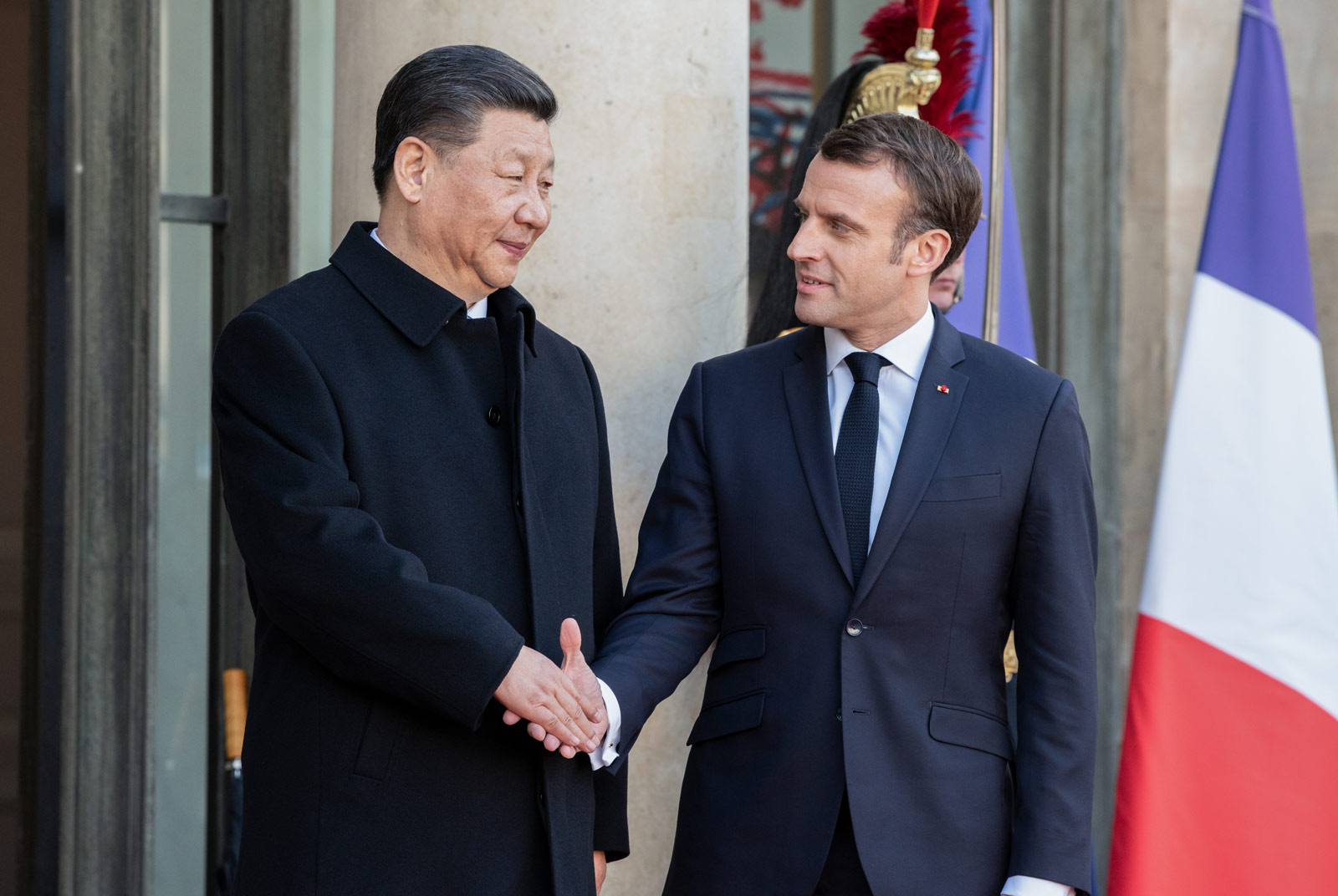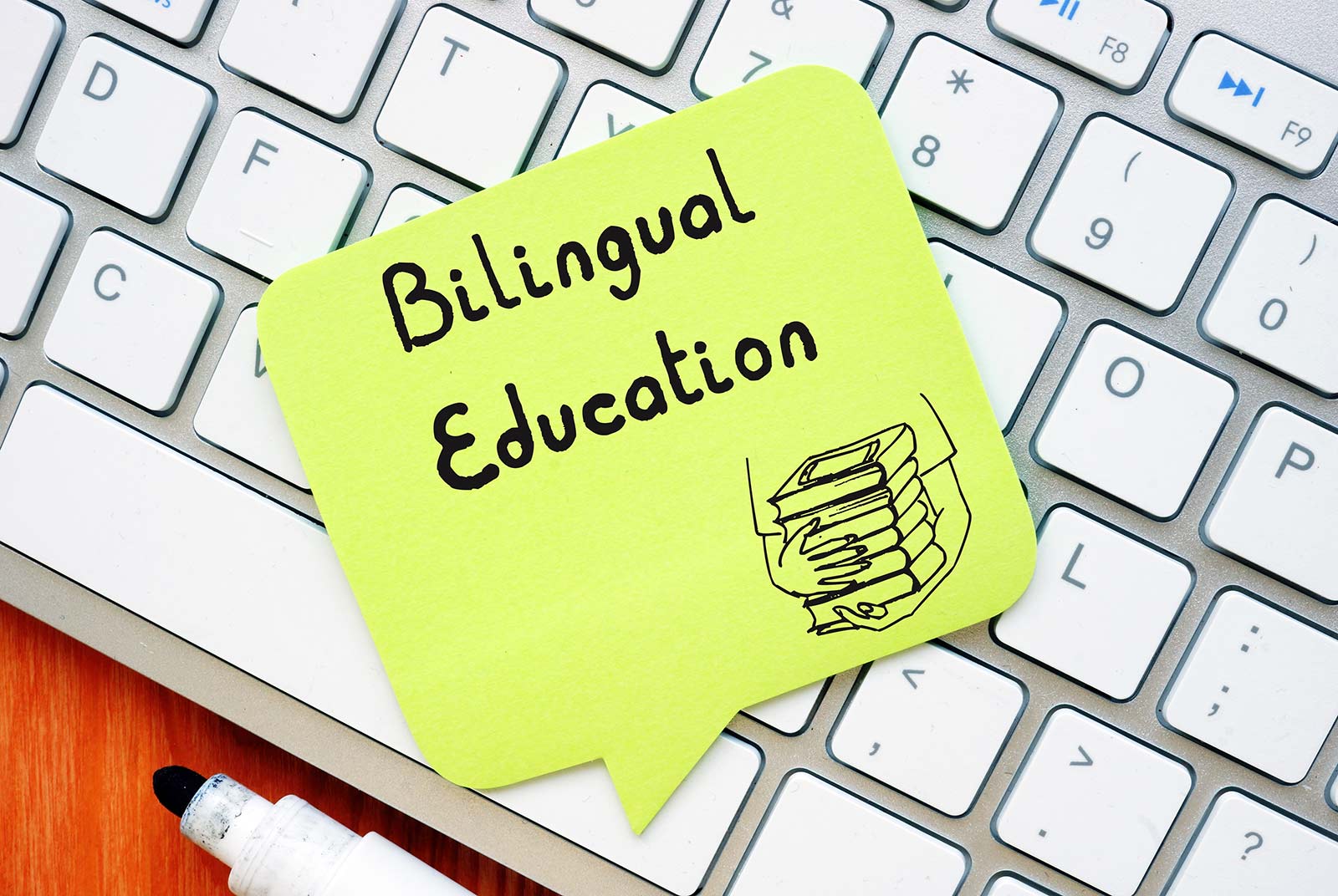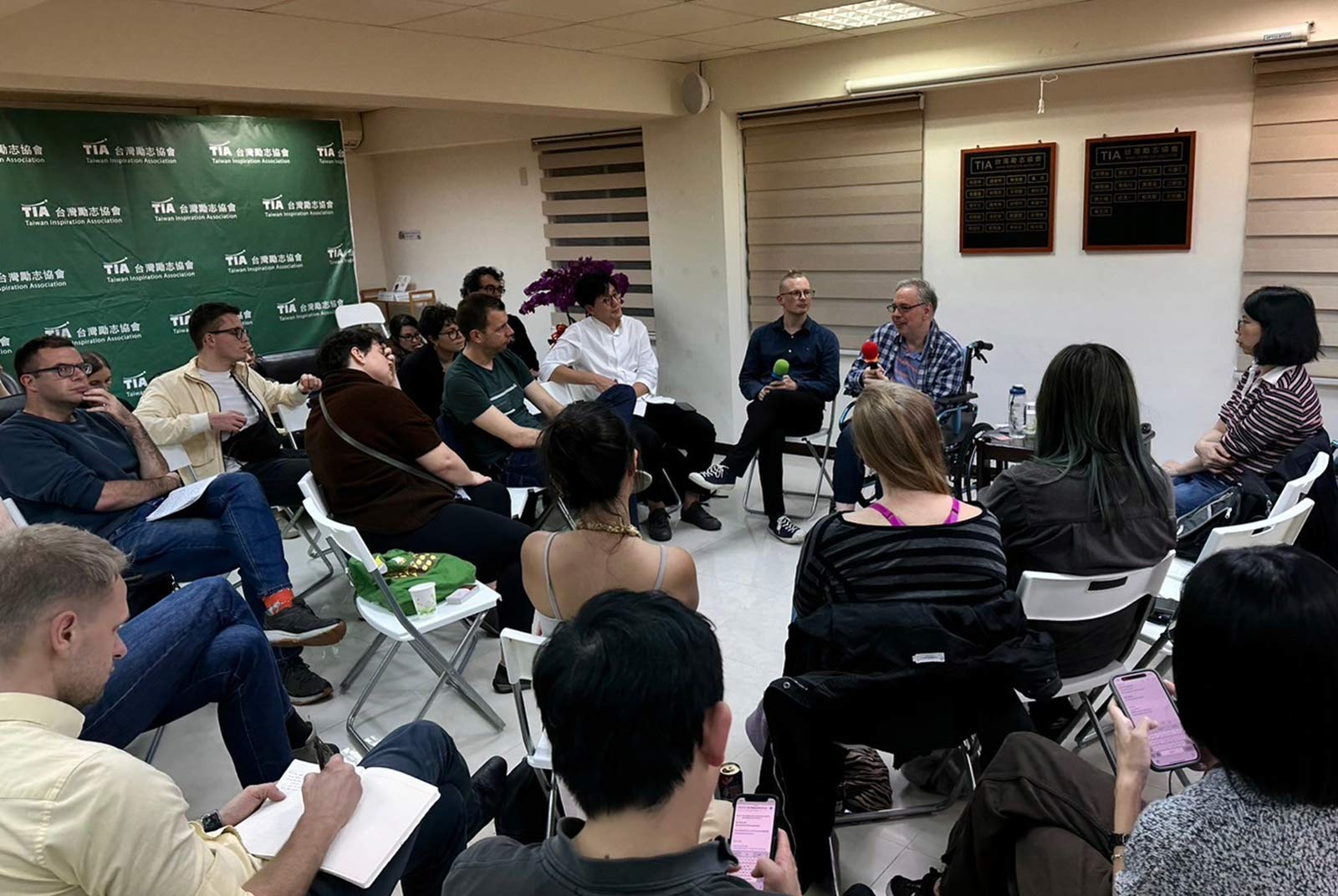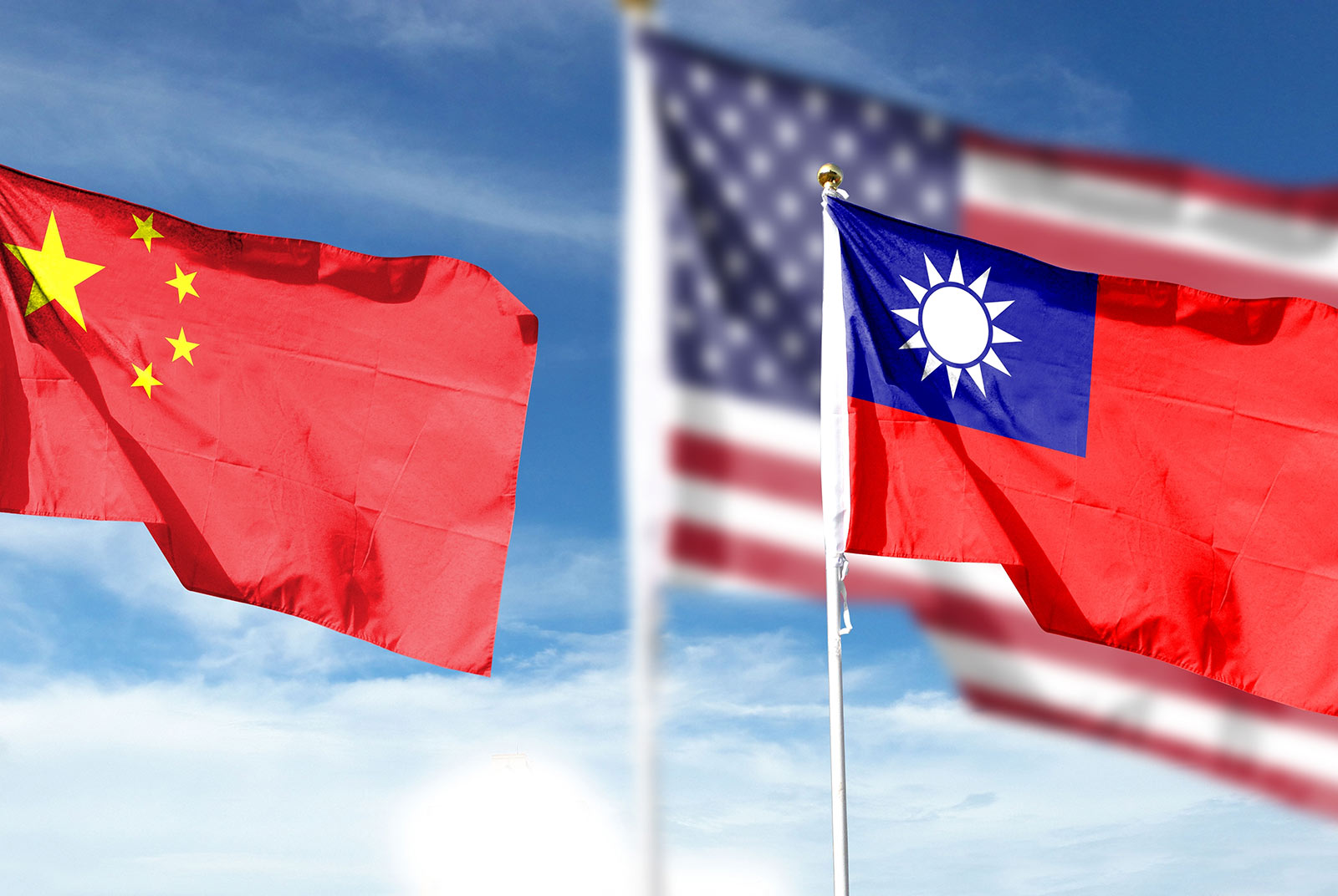On Macron’s visit to Beijing and the challenge of finding “the European way”

Source:shutterstock
In response to the recent controversial comments regarding Taiwan made by French President Emmanuel Macron, Zsuzsa Anna Ferenczy pointed out the challenge of finding “the European way” of dealing with global affairs, and three major challenges the EU is facing with China.
Views
On Macron’s visit to Beijing and the challenge of finding “the European way”
By Zsuzsa Anna Ferenczyweb only
The return of power politics with the intensification of the US-China geostrategic rivalry and Russia’s war against Ukraine since February 2022 have forced the European Union to finally start adjusting to a new reality. Yet, if the joint visit of French President Emmanuel Macron and Commission President Ursula von der Leyen to China in April revealed anything of the EU’s geopolitical adjustment it is that its search for a ‘European way’ forward is far from being complete. Nonetheless, although challenging, the visit was important. Going forward drawing the right lessons will be vital for the EU.
The visit must be seen as part of a difficult process of constructing a common strategic vision that supports a more consistent, coherent and confident geopolitical and economic European Union that its leaders have had in mind, but not yet seen emerge.
The ‘European way’?
In her 2019 speech on her five-year mandate’s priorities, the Commission president said: “My Commission will not be afraid to speak the language of confidence. But it will be our way, the European way”. In 2020, the EU’s High Representative said, and has repeated on many occasions since then, that Europe “must learn quickly to speak the language of power”, adding that reference to the “language of power” would be a landmark quote of what will coin his mandate.
Three years later, the EU continues to struggle with Borrell’s Sinatra Doctrine, meaning finding the ‘European way’ to deal with the US-China competition and China’s authoritarian shift. In Borrell’s words, the EU should look at the world from its own point of view, defending its values and interests, and using the instruments of power available to it.
With her mandate nearing its end, von der Leyen’s record of pursuing the European way and urging a common response to the authoritarian challenges the bloc faces, deserves credit. Just days before she travelled to Beijing, von der Leyen delivered an assertive, self-confident and realistic speech on the state of EU-China relations, stressing the need to de-risk, not decouple from China. A vital part of this strategy must be alignment with other partners, she said.
Von der Leyen called for strong coordination between member states and EU institutions, and a willingness to avoid Beijing’s divide and conquer tactics. By urging “willingness” she really urged political will, the display of which has been rare in much of the EU when dealing with China. She also stressed that diplomatic stability and open communication lines with China remained “vitally important”. By delivering the same strong message in Beijing she showed confidence – and power, both of which are fundamental to establishing and pursuing the ‘European way’.
In contrast, Macron did not conceal his staunch belief and push in the EU’s strategic autonomy, a concept he has consistently pursued over the past years. Ironically, in Beijing he failed to amplify the ‘European way’ that he claims he holds so dear. Macron undermined two of the core messages of the Commission president: the importance of coordination between member states and of close cooperation with like-minded partners.
Macron weakened von der Leyen’s resolve to project an emerging but still fragile European convergence on the need to empower the EU with the right tools to defend itself and withstand Beijing’s divide and rule tactics, and instead played into Beijing’s hands on both fronts. He also failed to secure any concession from China on, even though prior expectations he would succeed might have been unrealistic. In addition, Macron’s awkward stance on Taiwan, cautioning against Europeans being followers on the matter by adapting to an “American rhythm and a Chinese overreaction”, he alienated fellow Europeans and found himself harshly criticized by many across the Atlantic as well as inside Taiwan.
De-risk, not decouple
The reality is, the EU must have confidence and power, and the capability to project its power autonomously on the international stage in order to protect its own interests, without being dependent on others in critical areas and by working in cooperation with partners. In essence, this is strategic autonomy and is also the aim of de-risking (not of decoupling). While de-risking still includes engagement, decoupling excludes it, and therefore is neither viable, nor in Europe’s interest, von der Leyen had noted. In other words, decoupling doesn’t support the ‘European way’ to deal with China. Both Macron and von der Leyen support reducing Europe’s dependencies in critical areas, as they believe this is necessary and will help strengthen Europe’s position in the US-China rivalry.
But unlike von der Leyen, Macron didn’t assert to the Chinese leader that the EU is now determined to defend its interest at home and abroad from all attempts seeking to undermine them, including in Taiwan. Was this a failure to communicate, or a sign of where Macron truly stands?
Macron also failed to assert that the EU is strongest when it has like-minded partners that it can trust, something that China can’t possibly match. The French president missed the opportunity to state that strengthening European strategic autonomy can only work if rooted in trust-based partnerships, such as the transatlantic bond and partnerships in the region where China’s aggression has been most acute, namely in the Indo-Pacific.
Taiwan, a robust democracy and technologically advanced economy remains most vulnerable to Chinese aggression and faces an existential threat. The EU is the largest investor in Taiwan, therefore any conflict in the region would have serious consequences for its own security and prosperity. By distancing himself from this reality as Beijing ramps up its pressure on Taiwan, Macron sent the wrong signal at the wrong time; as the joint visit came to its end, Beijing started yet another military drill. At a time when democracies are actively engaging in joint reflections on deterrence against Beijing’s aggression and economic coercion, with the EU and France both having committed to contributing to the process, Macron’s stance undermines all efforts.
As the visit revealed yet again, going forward the EU faces three major challenges. The first is, how can the EU effectively manage China’s continuous rise and its authoritarian shift, given their high level of interdependence, and China’s often skillful exploitation of its fragmentation? Second, can the EU manage the US-China geostrategic rivalry in a ‘European way’ which relies on internal coordination and builds on like-minded partnerships? And the third, how can the EU define and pursue its own interests as a geopolitical actor and effectively use its leverage, which lies in its collective economic weight? The biggest challenge is the third one, and the visit offers some lessons in this regard.
Lessons to be learnt
Building on the Commission president’s assertive stance on China as she had laid it out in her message prior to the visit and then reiterated in Beijing, the EU needs to better define the ‘European way’ along the two fundamentals: better internal coordination and stronger external cooperation with partners, in particular the US. Transatlantic cooperation remains indispensable for the EU’s efforts to manage the US-China geostrategic rivalry in a ‘European way’.
Russia’s invasion of Ukraine has demonstrated that the EU is not capable of acting autonomously to defend its interests; it lacks the confidence, the means and the power. Deterring authoritarian threats requires the coordinated efforts of all democracies across the world, including Taiwan’s. It also requires clear and unambiguous communication.
Coordination in the face of Putin’s aggression has secured democratic unity behind Ukraine. Had such coordination emerged years earlier, when Russia’s authoritarian advance was starting to intensify, it could have deterred further Russian aggression. Going forward, strengthened transatlantic cooperation is necessary to secure credible and effective deterrence both in the face of further Russian violence and Chinese aggression against Taiwan and in the Indo-Pacific.
Finally, Taiwan remains a strategically vital partner for the democratic world as it deals with an authoritarian China. For the EU as a whole and its member states individually, it is wrong and dangerous to see Taiwan in any other way that diminishes its value and strategic relevance to democratic resilience.
(This piece reflects the author's opinion, and does not represent the opinion of CommonWealth Magazine.)
About the author:

Zsuzsa Anna Ferenczy is a Ministry of Science and Technology Postdoctoral Fellow in Taiwan, Non-Resident Fellow at Taiwan NextGen Foundation, Head of Associates Network at 9Dashline, and former political advisor in the European Parliament (2008-2020). She tweets @zsuzsettte.
Have you read?
- Legislative diplomacy: A key to Taiwan’s people-centric engagement with the world
- Ma Ying-jeou’s China visit opened a Pandora’s Box
Uploaded by Ian Huang






